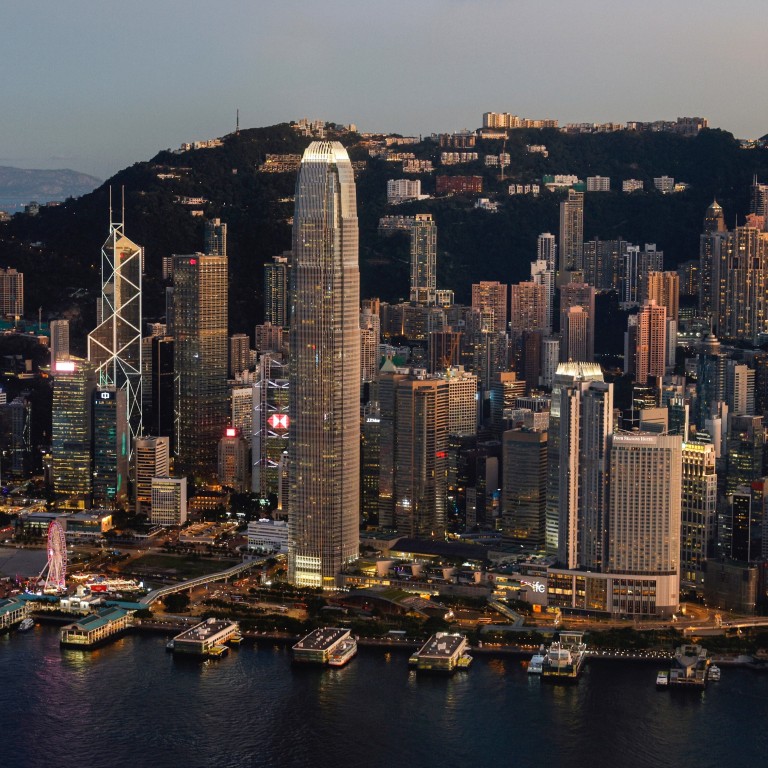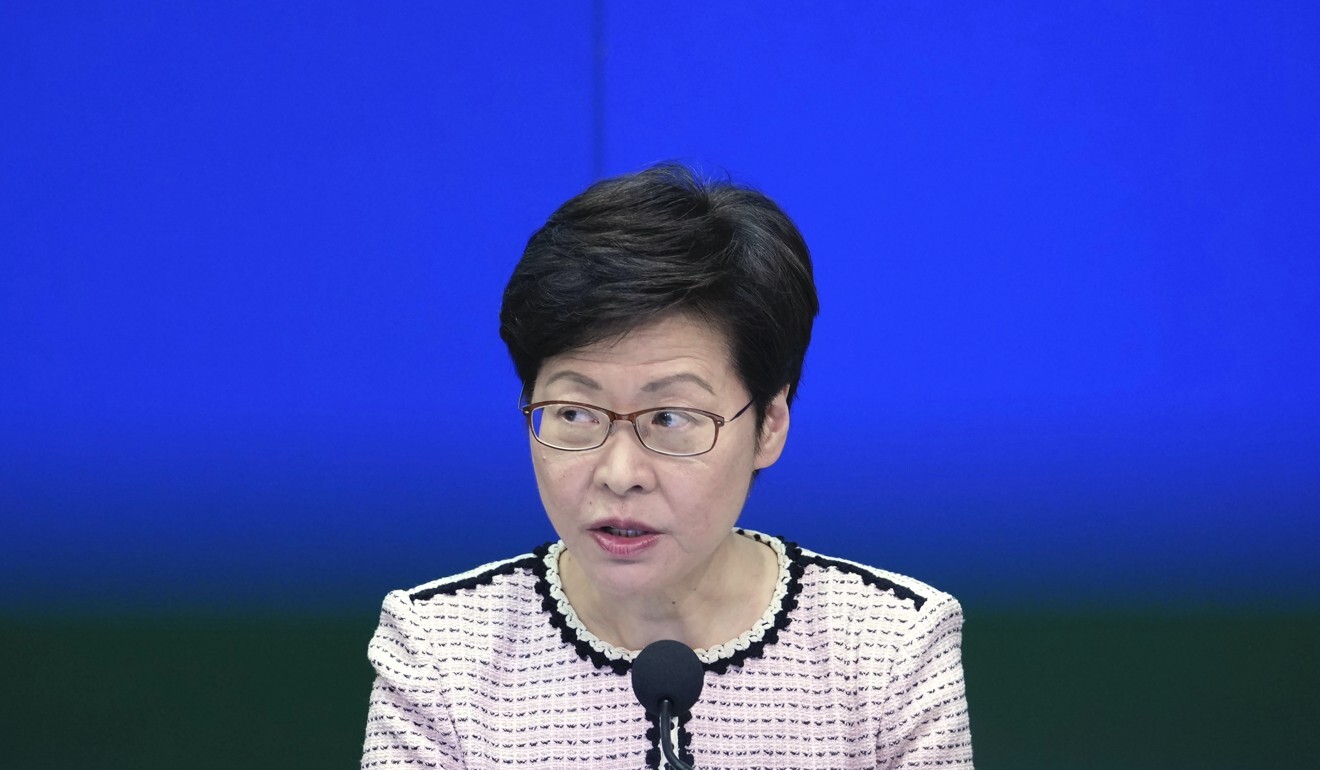
‘Ambiguity’ of Hong Kong’s anti-sanctions law will ensure flexibility for banks, government insiders say
- The country’s top legislative body will discuss this week how Hong Kong must enact the national law aimed at countering foreign punitive measures
- ‘One internal assessment is that the more vague the local version of the law remains, the more flexibility we will have during execution,’ insider says
Hong Kong’s anti-sanctions law will allow “ambiguity” ensuring flexibility in how penalties are imposed and keep any disruption to the city’s operations as a global financial hub to a minimum, government insiders have told the Post.
While lawyers who specialise in regulatory affairs warned of damage to investor confidence, one pro-establishment commentator predicted the law would end up benefiting firms by finally ending the volleys of retaliatory punitive measures exchanged by China and the United States.
The National People’s Congress (NPC) Standing Committee kicks off a four-day, closed-door session discussion of a host of draft laws on Tuesday.
Anti-sanctions law: can Hong Kong banks stay in good graces of China, US?
The broad law empowers Chinese authorities to seize assets from entities that implement sanctions against the country and allows individuals and companies to seek compensation for discriminatory practices in local courts. Businesses can be held liable if they refuse to help Beijing carry out countermeasures.

That obligation could put financial institutions in “impossible positions” and deal a blow to foreign investors’ confidence, the legal veterans warned.
“It’s hard for businesses to ignore the potential dangers when making investment decisions,” said one lawyer, who spoke on condition of anonymity due to the sensitivity of the matter.
Another said it would be difficult for firms to manoeuvre as the law essentially put politics before the law.
Hong Kong legislature should apply anti-sanctions law in city: Carrie Lam
But a government source familiar with the matter said Hong Kong authorities would need “plenty of time” to thoroughly consider how the local law should be prepared to minimise any potential impact on financial institutions in the city.
“One internal assessment is that the more vague the local version of the law remains, the more flexibility we will have during execution, especially when the relationship between the two powers remains uncertain,” the insider said.
A possible scenario is getting fined, which will not be damaging for banks
Even if Beijing authorities hand the drafting over to Legco, they could still deliver a deadline for its completion. According to the source, no signs had emerged yet that the matter would be made a priority for Legco, which will finish its current term at the end of October.
Another government insider labelled warnings by critics of an exodus of banks as “unrealistic”, saying that consequences for any breaches would be “manageable” for large financial institutions.
The source pointed to Article 12 of the mainland law countering foreign sanctions that stated organisations and individuals could “initiate litigation in the people’s courts” requesting offending entities provide compensation for enforcing or helping to enforce discriminatory punitive measures.
“Civil lawsuits arising out of such disputes might take years,” the insider said. “And a possible scenario is getting fined, which will not be damaging for banks.”
Anti-sanctions law will be wielded with care, vows Hong Kong justice minister
Pro-Beijing political commentator Lau Siu-kai, a vice-chair of the semi-official Chinese Association of Hong Kong and Macau Studies, agreed the financial sector would inevitably be impacted. But the effects would be no different than what companies already faced in complying with sanction laws enacted by other countries in which they operated, he argued.
In the long run, Beijing’s move would bring the cycle of punishments and restrictions to a stop, he predicted.
“It will provide protection for Hong Kong … Foreign countries will have to think twice because there is a chance they will shoot themselves in the foot,” he said.
While local legislation could not be too specific as it would “lose its deterrent effect”, the Hong Kong government could write in a clause to allow negotiation with an accused entity before imposing any penalties, Lau suggested.
Economist Law Ka-chung, who previously warned that about half of the city’s roughly 200 banks could leave due to the anti-sanctions law, said the concerns of businesses would not be alleviated simply by including ambiguity in the draft.
“Tactics used by the Chinese Communist Party in its previous crackdowns on institutions were quite unpredictable,” he said. “When managing risks, it’d be quite impossible for banks to stay safe even by setting up a separate entity just for their Chinese businesses.”
Law added that institutions most likely to leave were smaller foreign banks, which would not give up their US dollar system base but had greater flexibility to shift operations elsewhere.
While the security law targeted four specific offences, the anti-sanctions law would affect how financial institutions and other companies carried out due diligence, as they would have to comply with laws both in Hong Kong and at home, he warned.
“Having said that, I am also glad the government is considering local legislation for the anti-sanctions law,” he said, adding such a route would allow for debate in Legco.
Anti-sanctions law a must but Hong Kong’s status will be considered: Paul Chan
Solicitor Nick Chan Hiu-fung, a deputy to the NPC, pointed to pros and cons in tailoring the law to the city. While the process was likely to take longer, stakeholders would also have an opportunity to fully air their views during the process, he said.
But a pro-Beijing lawyer, who preferred not to be identified, said that if the law was locally drafted, legislators might find it difficult to retain the ambiguity of the national version, noting businesses were most deeply concerned about the potential penalties they faced.


